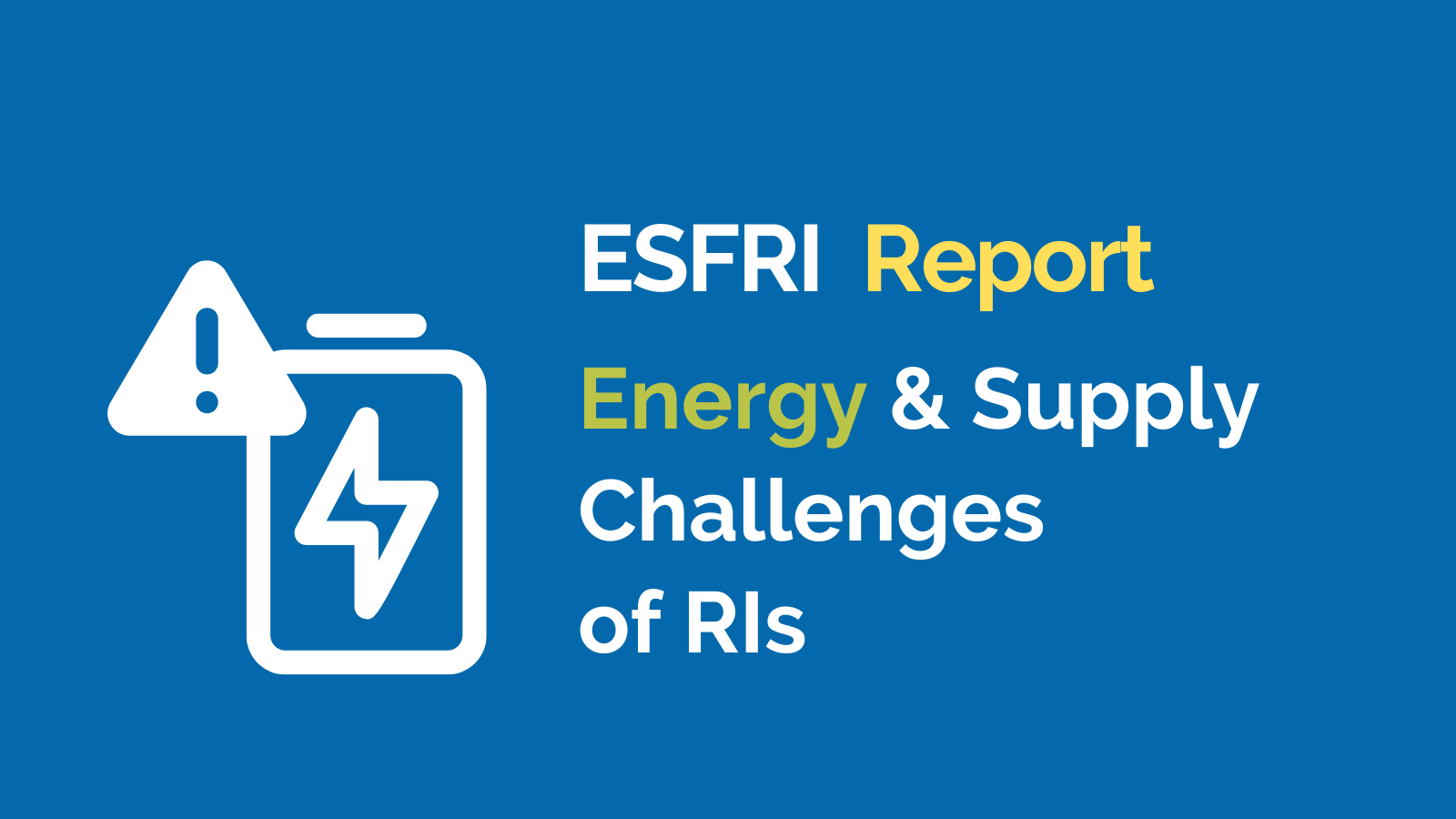ESFRI Report on Energy and Supply Challenges of Research Infrastructures

In conjunction with the COVID-19 pandemic aftermath, Russian aggression on Ukraine has wide-ranging consequences for the EU, including high inflation, an immense energy cost increase, and a shortage of critical resources. All of these have pronounced effects on the sustainability and operations of research infrastructures (RIs), several of which face difficulties in providing continuous service. To address these topics, the European Strategy Forum on Research Infrastructures (ESFRI) has established a dedicated drafting group to look into the energy and supply challenges, also responding to a call by Competitiveness Council to do so.
This report highlights the significant impact of the Russian aggression on Ukraine on the sustainability and operations of research infrastructures (RIs) in the EU. The energy crisis resulting from the Russian aggression poses a severe challenge to the RIs, predominantly analytical RIs, with energy-intensive RIs such as synchrotrons, computing centres, accelerator-driven particle sources, neutron facilities, research reactors, and lasers being the most affected. The shortage of critical resources and materials, such as some gases, rare isotopes, and permanent magnets, also presents a significant challenge to RIs, although they may not be a consequence of the war.
The report presents recommendations to ESFRI, Member States, and the European Commission based on good practices from ESFRI member countries and the discussion within the drafting group to address these challenges and enhance the future resilience of RIs. The recommendations include allocating additional funds and energy price capping for the most energy-intensive RIs, developing response plans that include actions aimed at greening the operations of RIs, considering the needs of the RI communities in the activities linked to the Critical Raw Materials Regulation, and setting up specific measures to support the Ukrainian research community. The report emphasizes the importance of preparing for future crises, increasing the resilience and preparedness of European society to cope with any present and future crisis.
